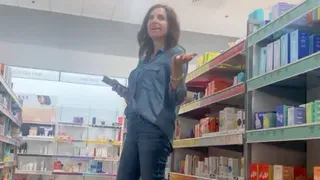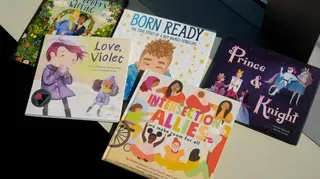March 31, 2021
Trans Teenagers Fear Alabama Push to Outlaw Gender Treatment
Kim Chandler READ TIME: 3 MIN.
Phineas Smith, 16, enjoys sarcastic humor, learning to play the guitar, skateboarding and his mother's pasta carbonara.
He also hopes to begin hormonal therapy soon, now that he's reached the minimum age his medical provider requires for treating transgender teens. But his medical care could soon become illegal in Alabama as Republican lawmakers seek to criminalize gender transition treatments for people under 19.
"I want the senators, and the people voting for this, to know I'm not hurting anyone. I just want to be myself. I want them to spend a day with someone like me, to actually get to know them and to learn," Smith said Tuesday.
Lawmakers in Alabama and 16 other states have introduced measures targeting healthcare for transgender youth amid a campaign encouraged by the Alliance Defending Freedom, the Heritage Foundation and other groups aligned with the Republican Party. Companion bills would prohibit transgender girls from playing women's sports at school.
"It is an organized national effort," said Carmarion D. Anderson, Alabama director for the Human Rights Campaign. "Shame on any politician who will vote for hateful, meanspirited, discriminatory bills."
The Alabama bill would make it a felony, punishable by up to 10 years in prison, for a doctor to prescribe puberty-blockers or hormones or perform surgery to aid in the gender transition of people 18-years-old or younger. The measure cleared the state Senate with no Democratic support and awaits a vote in the House of Representatives, where the GOP leads Democrats 76-27. Republican Gov. Kay Ivey has not said whether she'll sign it.
Opponents, including parents and trans youth, say such measures interfere with medical decisions and target trans individuals for the sake of politics. Sponsors counter that they are trying to protect children from decisions that should wait until adulthood.
"It's wrong for this to happen to kids. Children aren't mature enough to make these decisions on surgeries and drugs," said Republican Sen. Shay Shelnutt. He said he was unaware such treatments were already happening in Alabama when he first introduced the bill last year.
"The whole point is to protect kids," said Shelnutt, who acknowledged after the Senate vote that he never spoke with a trans youth while preparing the bill.
Parents and teens who have spoken out against the bill in rallies, hearings and interviews said it will cost kids' lives, instead of protecting them.
Smith's mother, Trace Trice, said her child was a "boy before he knew what trans meant."
"He was a boy whether or not these state legislators like it or not," she said at a rally.
Jessica Fuller was 16 when she left a letter in her father's desk explaining that she is transgender.
"I was miserable. I would lash out at people. I was angry. I was frustrated," said Fuller, now a 21-year-old writer and Dungeons and Dragons enthusiast. She said that after getting counseling, she eventually was prescribed testosterone blockers and finally a small dose of estrogen. "Once I got on T-blockers things started to change," she said.
Lawmakers seem to wrongly think that kids can get these drugs easily or without years of counseling, she said.
"There's plenty of times where they would ask me over and over again if I really wanted this. I kept getting annoyed at them because they kept asking me. I knew what I wanted. I knew exactly what I wanted."
Her father, David Fuller, a police sergeant, said when he first began to do research, he was terrified to learn of the suicide rate among transgender kids. He said the doctors and counselors who treated Jessica are heroes in his book.
"I'm a police officer. You are asking me to arrest the folks I know saved my kid's life," Fuller told a legislative committee.
Jeremiah Smith, 17, of Trussville said he was able to start on a small dose of testosterone only after two years of talking with counselors and a medical team.
"Knowing what it did for me, and what it could do for others," Smith said it's horrible to think such treatments might not be available for other trans teens.
"The effect that it had on me was really profound. My mental health and physical health improved drastically with the introduction of that medication into my life," he said.







